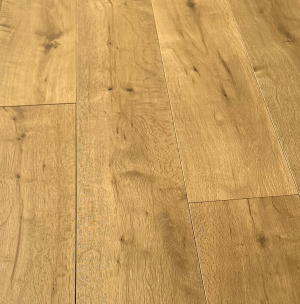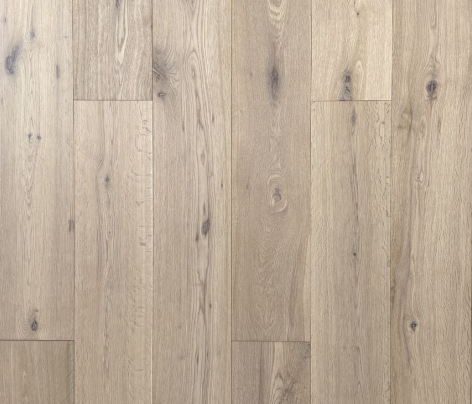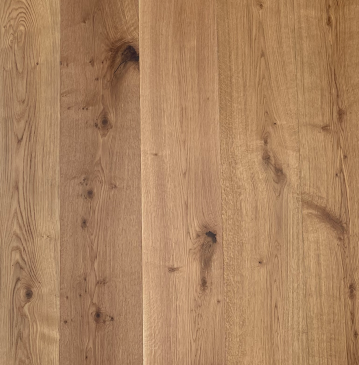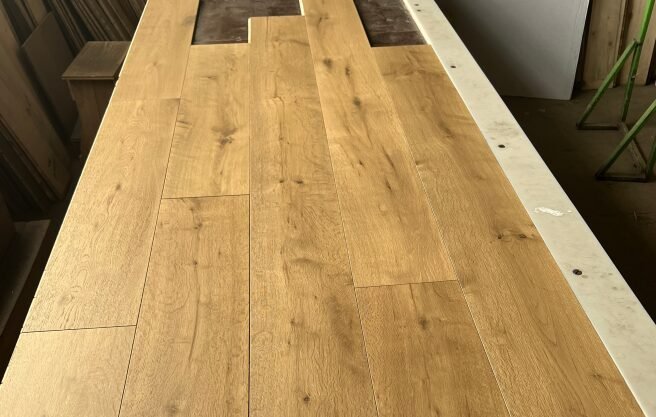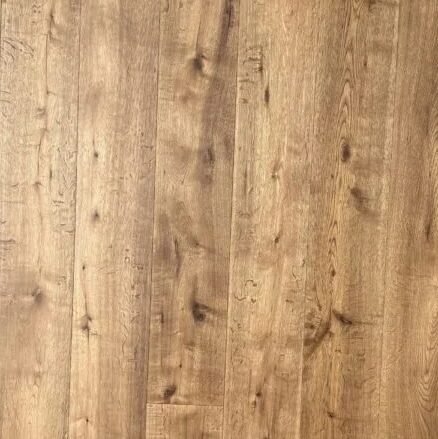Introduction
Engineered hardwood flooring has become an increasingly popular choice in residential renovation due to its aesthetic appeal, durability, and eco-friendly features. As homeowners seek flooring solutions that balance beauty and functionality, engineered hardwood flooring stands out as a versatile and practical option for modern home design.
Wholesale & project supply available with stable specifications and repeatable quality View Oak Engineered Flooring Supplier →
Advantages of Engineered Hardwood Flooring
Engineered hardwood flooring offers several benefits that make it ideal for residential applications:
- Easy Installation: Compared to solid wood, engineered flooring comes with a more stable structure, allowing for various installation methods such as floating, glue-down, or click-lock systems.
- Durability and Wear Resistance: The multi-layer construction enhances strength, making it resistant to wear, dents, and scratches—ideal for high-traffic areas.
- Moisture and Humidity Resistance: Unlike traditional solid wood, engineered hardwood is less prone to warping or expanding due to humidity changes, making it suitable for kitchens, basements, and areas with fluctuating temperatures.
- Long-Lasting Beauty: Featuring a real wood veneer, engineered hardwood maintains the authentic look of solid wood while offering better structural stability over time.
- Eco-Friendly Choice: With a sustainable core and a reduced need for solid hardwood, this flooring option contributes to environmental conservation.

Suitable for Various Residential Interior Styles
Engineered hardwood flooring is available in a wide range of colors, finishes, and wood species, making it adaptable to various interior design styles:
- Modern Minimalist: Light-colored oak or maple floors create a clean and spacious ambiance that enhances modern interiors.
- Traditional and Classic: Richer tones like walnut and mahogany complement classic furniture and architectural details.
- Rustic and Country Style: Wire-brushed or distressed finishes add a warm, vintage feel to countryside and farmhouse designs.
- Industrial and Contemporary: Dark stains and matte finishes suit loft-style apartments and modern urban homes.

Key Factors to Consider When Choosing Engineered Hardwood Flooring
When selecting engineered hardwood flooring for residential use, homeowners should consider:
- Color and Grain Pattern: Choose a shade and wood species that complement the overall home decor.
- Durability and Scratch Resistance: High-traffic areas require stronger finishes like aluminum oxide coatings.
- Plank Size and Thickness: Wider planks create a luxurious look, while thicker wear layers allow for refinishing over time.
- Environmental Standards: Opt for flooring that meets industry certifications for low formaldehyde emissions and sustainable sourcing.

Vifloor Engineered Hardwood Flooring in Residential Projects
Vifloor engineered hardwood flooring has been successfully applied in various residential settings, providing both style and functionality:
- Luxury Villas: Premium oak flooring enhances the elegance of high-end homes, offering a refined and sophisticated look.
- Urban Apartments: Space-efficient flooring solutions with easy installation options cater to the needs of city dwellers.
- Family Homes: Scratch-resistant and moisture-proof engineered hardwood provides long-term durability, ideal for families with children and pets.

Conclusion
Engineered hardwood flooring is a perfect choice for residential renovations, offering a combination of beauty, durability, and eco-friendliness. Its adaptability to different interior styles, ease of maintenance, and long-lasting performance make it a valuable investment for homeowners. Vifloor engineered hardwood flooring ensures a high-quality, stylish, and practical solution for modern living spaces, delivering comfort and elegance for years to come.

